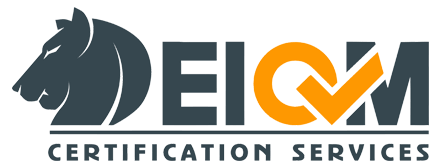IATF 16949 is an international quality management standard specifically designed for the automotive industry. It is based on the ISO 9001 framework but includes additional requirements that are specific to the automotive sector. This standard aims to ensure consistent quality and continuous improvement throughout the automotive supply chain.
The Importance of IATF 16949 in the Automotive Industry
IATF 16949 plays a crucial role in the automotive industry by setting the benchmark for quality management systems. It helps automotive companies meet customer expectations, improve product and process quality, and enhance overall customer satisfaction. Compliance with This standard is often a requirement for suppliers to major automotive manufacturers.
Benefits of Implementing
Implementing IATF 16949 brings numerous benefits to automotive companies. Some key advantages include:
- Enhanced product quality and reliability
- Improved customer satisfaction and loyalty
- Streamlined processes and reduced waste
- Increased efficiency and cost savings
- Better risk management and mitigation
- Enhanced supplier relationships and collaboration
- Access to new markets and business opportunities
Key Requirements of IATF 16949
This standard outlines several key requirements that organizations must meet to achieve certification. These include:
- Establishing a quality management system
- Defining processes for product realization and customer satisfaction
- Implementing risk-based thinking and preventive actions
- Conducting internal audits and management reviews
- Monitoring and measuring key performance indicators
- Continual improvement of processes and products
Step-by-Step Guide
Implementing IATF 16949 requires a systematic approach. Here is a step-by-step guide to help organizations navigate the implementation process:
- Understand the standard’s requirements and align them with the organization’s objectives.
- Conduct a gap analysis to identify areas that need improvement.
- Develop an implementation plan with clear objectives, timelines, and responsibilities.
- Establish a cross-functional team to lead the implementation process.
- Train employees on the standard’s requirements and their roles in achieving compliance.
- Review and update existing processes to align with This standard requirements.
- Implement necessary changes and document all procedures and work instructions.
- Conduct internal audits to ensure compliance and identify areas for improvement.
- Address any non-conformities and take corrective actions.
- Prepare for the external certification audit.
- Engage in a certification audit conducted by an accredited certification body.
- Continually monitor and improve the quality management system to maintain certification.
IATF 16949 Certification Process
The 16949 certification process involves several stages:
- Pre-assessment: A preliminary evaluation to assess the organization’s readiness for the certification audit.
- Stage 1 Audit: An initial assessment of the organization’s documentation and readiness for the certification audit.
- Stage 2 Audit: A comprehensive audit to verify the effective implementation of This standard within the organization.
- Certification Decision: Based on the audit findings, the certification body decides whether to grant IATF 16949 certification.
- Surveillance Audits: Periodic audits to ensure the organization’s ongoing compliance with the standard.
- Recertification: The certification must be renewed periodically through re-assessment audits.
Challenges in Implementing IATF 16949
Implementing IATF 16949 can pose challenges for organizations, including:
- Aligning existing processes with the standard’s requirements
- Ensuring consistent implementation throughout the supply chain
- Securing management commitment and involvement
- Overcoming resistance to change within the organization
- Managing documentation and record-keeping requirements
- Addressing resource constraints and training needs
- Balancing compliance with other industry-specific regulations
Continuous Improvement
IATF 16949 emphasizes the importance of continuous improvement to drive organizational excellence. By implementing the standard, organizations are encouraged to monitor key performance indicators, analyze data, and identify opportunities for improvement. Continuous improvement initiatives help enhance product quality, reduce waste, and drive overall efficiency.
The Future of IATF 16949 in the Automotive Industry
IATF 16949 is expected to remain a critical quality management standard in the automotive industry. As technology advances and customer expectations evolve, the standard will continue to adapt to address emerging challenges and opportunities. The focus on quality, risk management, and continuous improvement will remain vital for automotive companies striving to excel in a competitive marketplace.
Conclusion
IATF 16949 is a quality management standard specifically designed for the automotive industry. Its implementation brings significant benefits, including improved product quality, enhanced customer satisfaction, and streamlined processes. While the certification process may pose challenges, organizations that commit to IATF 16949 can achieve operational excellence and gain a competitive edge in the automotive sector.
Contact EIQM
To contact us, please fill out the form below. We will contact you as soon as possible. You can also apply through this form if you would like to receive system certification or representation of EIQM Certification Body.

